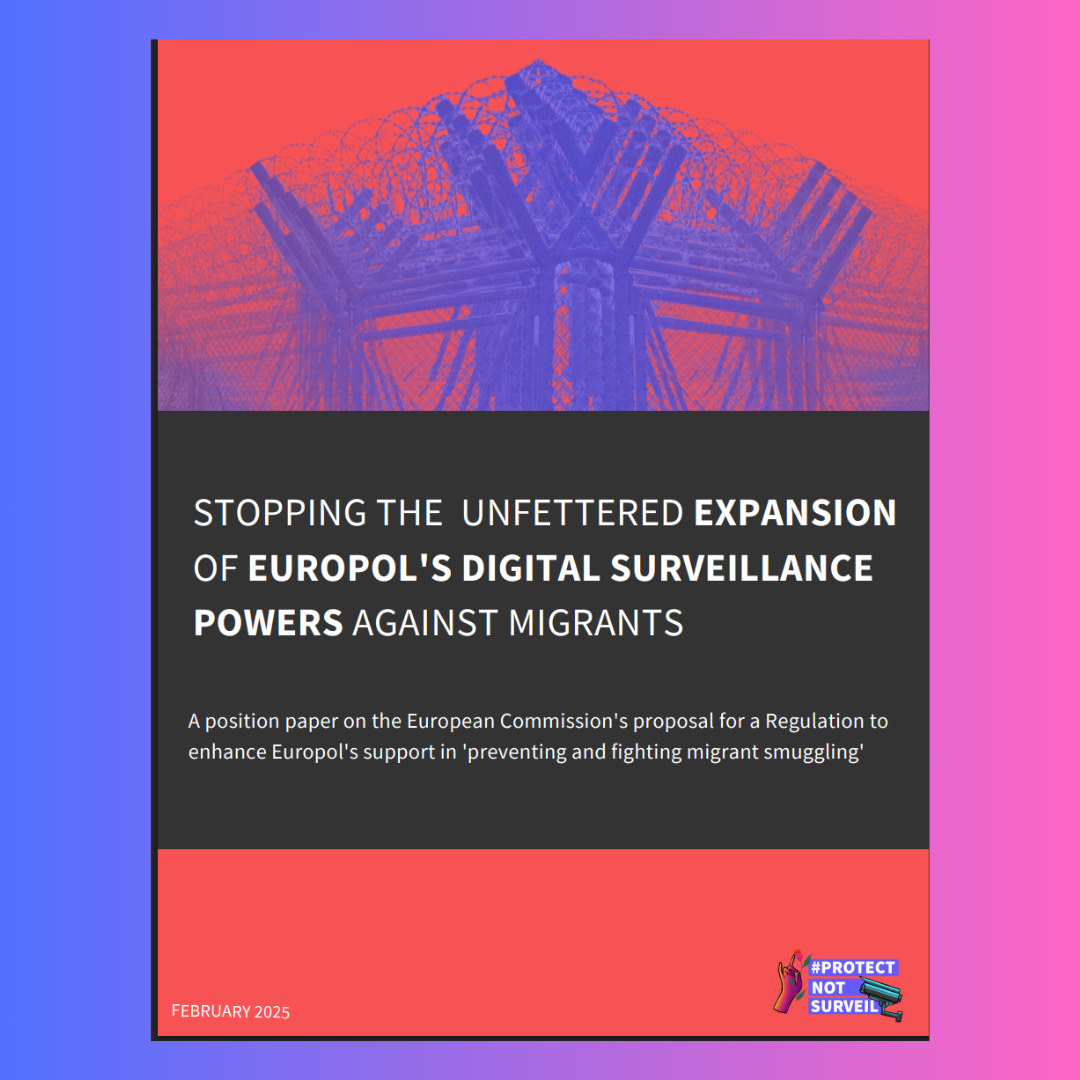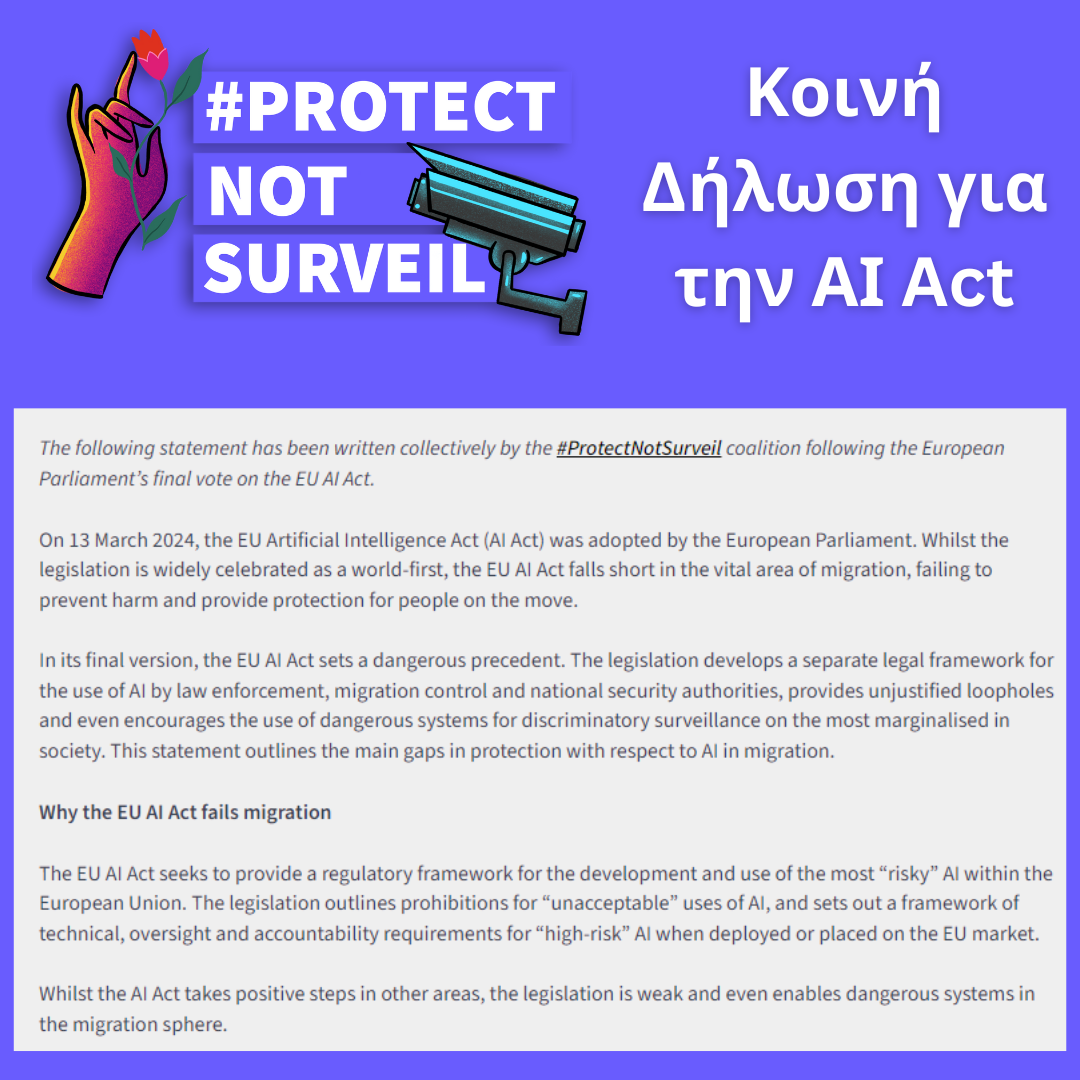The Protect Not Surveil coalition publishes its report on the Europol Regulation
Today, the #ProtectNotSurveil coalition, in which Homo Digitalis serves as a member, launches its report on the Europol Regulation and calls for the full rejection of the European Commission’s proposal.
The Europol Regulation inadvertently supports the business model of smugglers while criminalising migration.
Crucially, the Europol Regulation:
- expands Europol’s surveillance capacity beyond its mandate under the pretext of fighting ‘migrant smuggling’, giving Europol new powers “in relation to all crimes for which it is competent”;
- The EDPS has already raised concerns that the file poses significant risks to the data and privacy rights of migrants, allowing mass data collection and sharing between Member States and EU agencies with known human rights violations (Frontex), as well as third countries without any legal basis for data sharing with the EU;
- The proposal is unsafe and unsubstantiated, presented without a proper impact assessment and based on false claims that smugglers pose the greatest threat to the safety of migrants (UN report);
- Millions in EU public funds will be wasted on Europol’s new activities for a false solution to migration management that simply will not work.
A summary of our position was also published in EUobserver. The full report is available here.
Protect Not Surveil Campaign's Joint Statement: AI Act provisions are dangerous for vulnerable groups in the migration field
On 13 March 2024, the European Parliament adopted the EU Act on Artificial Intelligence (AI ACT).
Although the legislation is widely presented as a global first, the EU AI Act falls short in the important area of migration, as it does not prevent the high risks that exist and does not provide the necessary level of protection to vulnerable groups in society who are targeted by intrusive technologies in this area.
In its final version, the EU AI act sets a dangerous precedent. The legislation develops a separate legal framework for the use of AI by law enforcement, immigration control and national security authorities, providing unjustified ‘loopholes’ in the obligations set out in its text, and even encouraging the use of dangerous systems for surveillance of the most marginalised members of society.
Homo Digitalis, having in the last 4 years made significant legal complaints in this regard before the DPAA, as well as a series of educational, awareness-raising and co-determination actions at EU level in this regard, is following with particular concern the relevant developments.
As part of our active participation in the Protect Not Surveil campaign, together with all its members, we have published a joint statement outlining the main gaps in the protection of vulnerable groups in the field of migration identified in the text of the AI Act.
You can read the text of our joint statement here.

